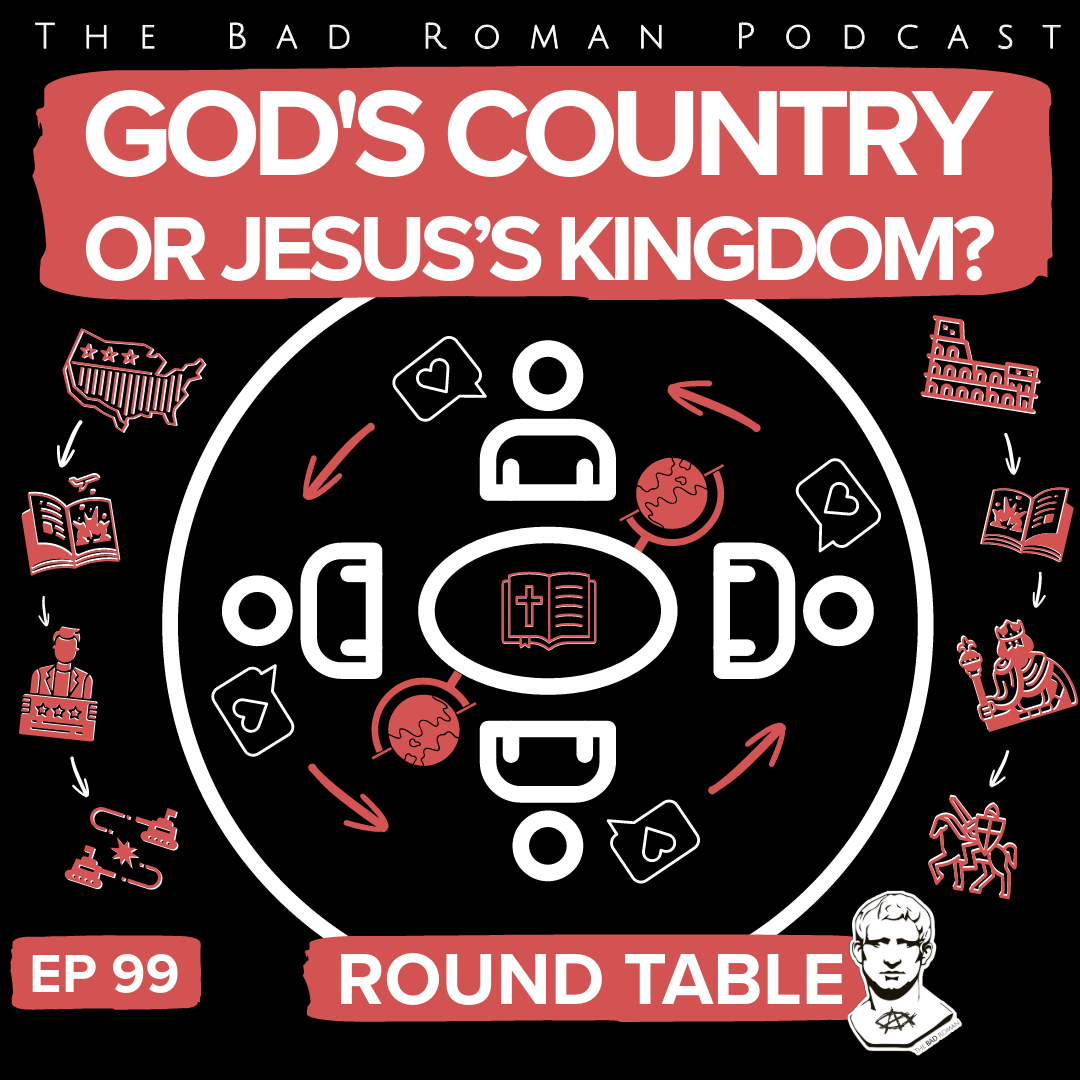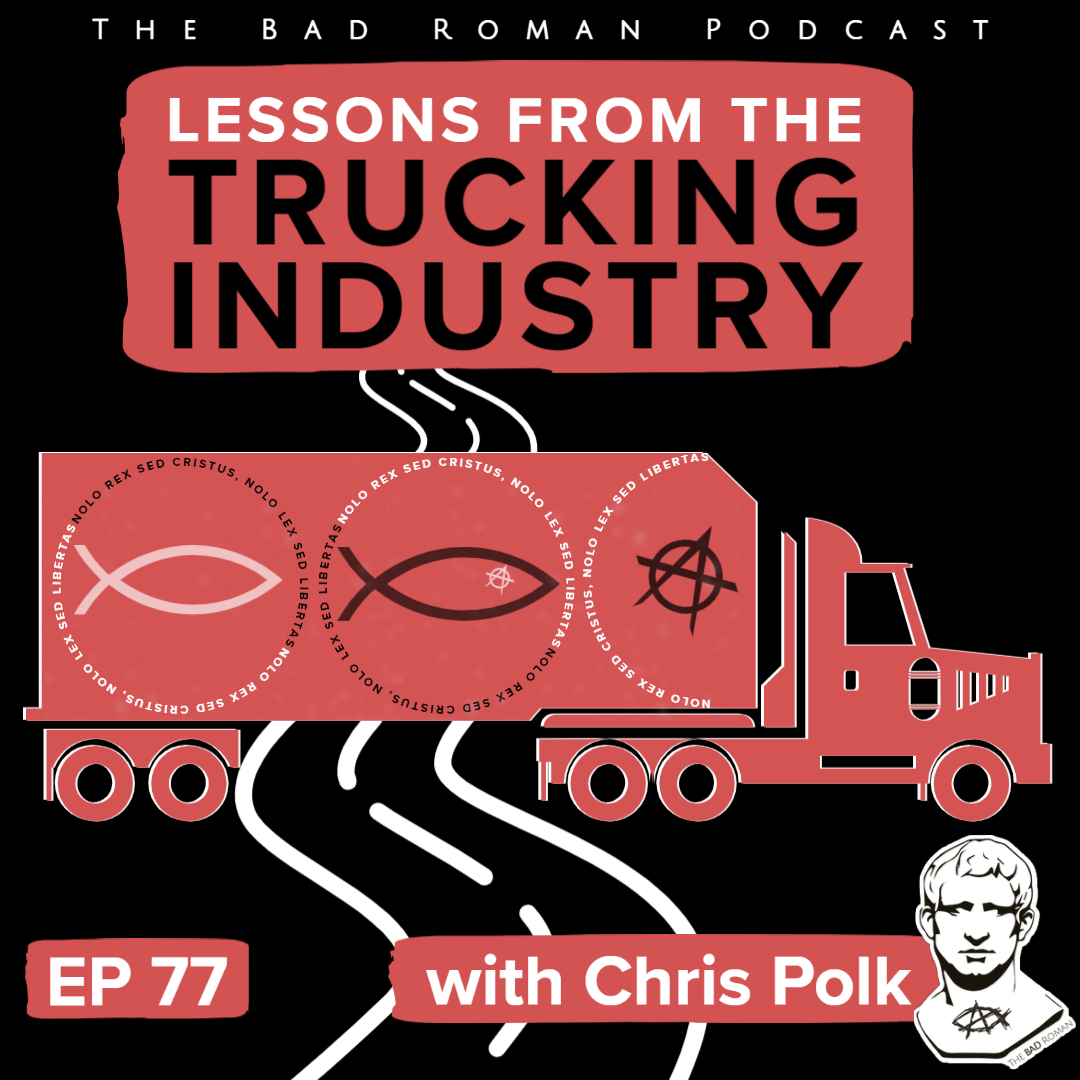About this Episode
Musician Jordan Smart shares his journey from growing up in a religious household in Ohio to becoming a touring musician. He discusses his early disillusionment with the church, his deep connection to music, and how punk rock influenced his worldview. The conversation centers around Jordan's song "Who Would Jesus Bomb?", which caught Craig's attention and led to this discussion. Jordan explains that while he isn't vocally anti-war, his frustrations with how religious traditions can be manipulated for propaganda inspired him to write the song.
Jordan reflects, "I was raised to believe Jesus loves everyone, but seeing how that message gets twisted to justify violence really pushed me to write this song." The episode delves into the troubling support for war among Christians, the manipulation by governments, and the importance of compassion and humanity. Jordan also highlights his project, Songs Not Bombs, which raises funds for Palestinian children.
Craig and Jordan discuss poignant lines from the song, such as, "Would Jesus bomb the atheist, the Muslim, or the Jew?" and "Would you still believe in Jesus if you found out he was brown?" These lines challenge listeners to reconsider their views on war, politics, and faith. This episode is a thought-provoking listen for anyone interested in these critical issues.
Connect with Jordan Smart:
Jordan Smart Music on Instagram
Songs Not Bombs on Bandcamp - All Proceeds Go to Palestine
Songs Not Bombs on Instagram
Episode Timestamps:
Timestamps:
(00:45) Jordan's Background
Jordan shares his upbringing in Ohio and his religious family background
His journey with music, starting from a young age
Background with Christianity and anarchy
(02:00) Music as a Form of Protest
Discussion on Jordan's project "Songs Not Bombs"
Efforts to raise funds for the Palestinian Children's Relief Fund (PCRF)
The impact of music in processing and responding to world events
Anti-War Sentiments
Jordan's long-standing anti-war beliefs were influenced by punk rock
Reflections on the current state of global conflicts
(7:27) The Power of Music
Craig and Jordan discuss the emotional impact of music
Music as a medium to express complex feelings and ideas
The ability of music to resonate with diverse audiences
(9:40) Christianity and War
The troubling support for the war among some Christians
The disconnect between Jesus' teachings and modern Christian behavior
Reflections on the pro-war stance of certain Christian groups
(11:59) Generational Perspectives
The younger generation's growing disillusionment with the current system
The potential for the younger generation to drive change
The impact of social media and 24-hour news cycles on youth
Political Disillusionment
Failures of both major political parties in the U.S.
The need for a new approach to governance and societal issues
Personal experiences with political disillusionment
(16:45) Personal and Political Pushback to Jordan’s Song “Who Would Jesus Bomb?”
Jordan shares experiences with pushback from friends and family
The challenges of speaking out on controversial issues
The importance of staying true to one's beliefs.
(20:51) Echo Chambers and Authenticity
The importance of breaking out of echo chambers
Staying authentic and true to one's message
The impact of authenticity on audience engagement
(24:26) The Role of the Military
Discussion on military recruitment and its implications
The true threats to freedom and liberty
Reflections on the U.S. military's global impact
(30:43) Compassion and Humanity
Emphasizing the need for compassion towards all people
The interconnected nature of various social justice issues
The role of compassion in creating a better world.
34:59 Challenging Beliefs
Jordan's song as a tool to challenge deeply held beliefs
The importance of questioning and re-evaluating one's views
The impact of music in provoking thought and discussion
(39:40) Personal Journeys
Craig shares his journey from neoconservatism to Christian anarchism
The influence of early church writings on his views
The role of personal experiences in shaping beliefs
(43:17) The Influence of Social Media
The role of social media in shaping public opinion
The dangers of misinformation and propaganda
The impact of social media on political and social views
(47:27) Interconnected Issues
The interconnected nature of various social justice issues
The importance of addressing these issues collectively
The role of music and activism in highlighting these connections.
(52:19) Political Theater
The manipulation of public opinion by the ultra-wealthy ruling class
The need for unity among the oppressed.
The impact of political theater on societal divisions
(57:52) Blonde Hair and Blue Eyes: Jesus and Race
The significance of recognizing Jesus' true background
The implications of Jesus' ethnicity for modern Christianity
The importance of challenging racial stereotypes in religious contexts.
(1:00:13) Encouragement and Support
Jordan shares the overwhelming support he has received for his music
The importance of continuing to speak out on important issues
Reflections on the impact of his song "Who Would Jesus Bomb?"
(1:03:21) Final Thoughts
Craig encourages Jordan to keep leaning into his message
The importance of making a difference through music and activism
Reflections on the need for boldness and authenticity in advocacy.





































